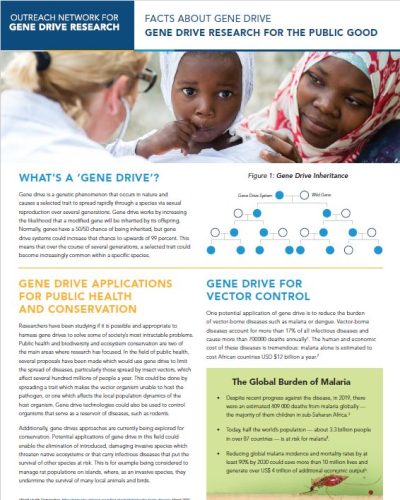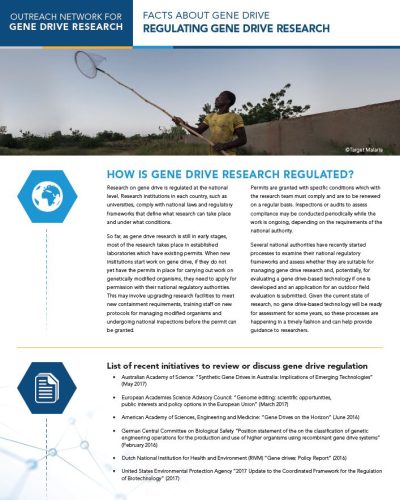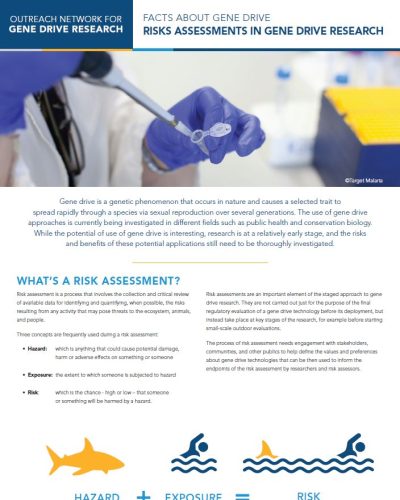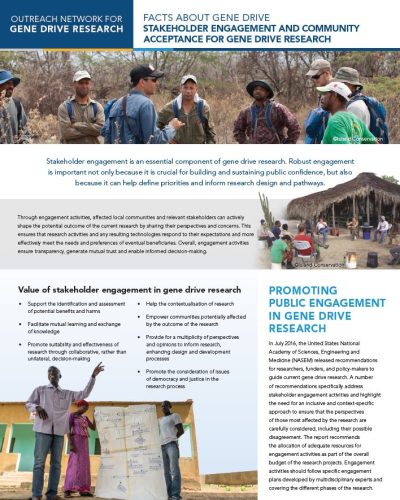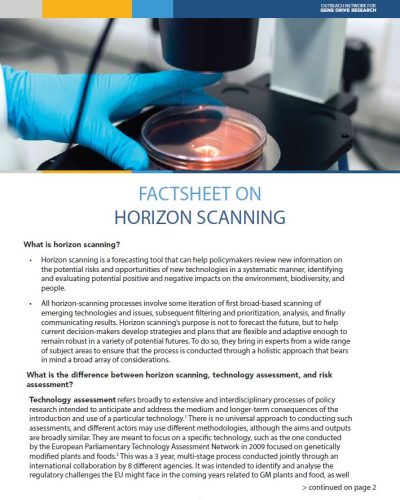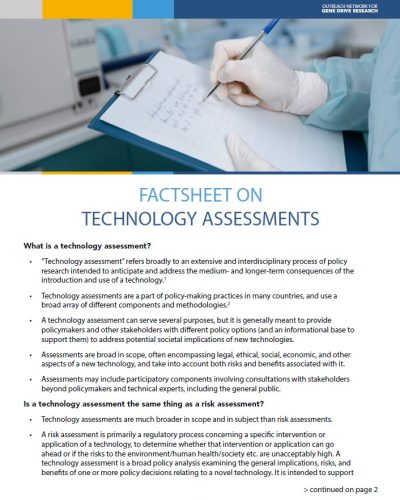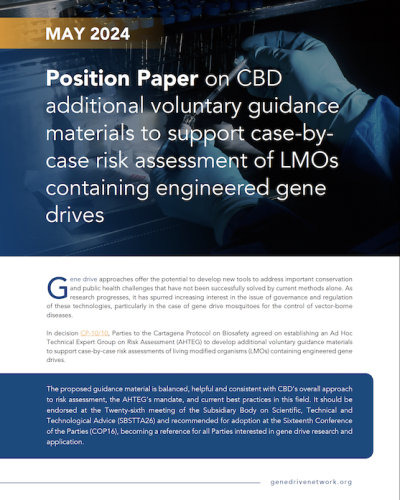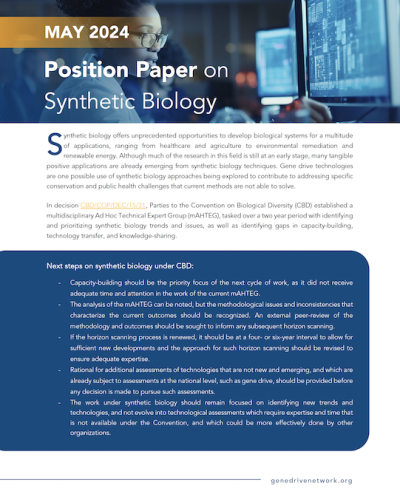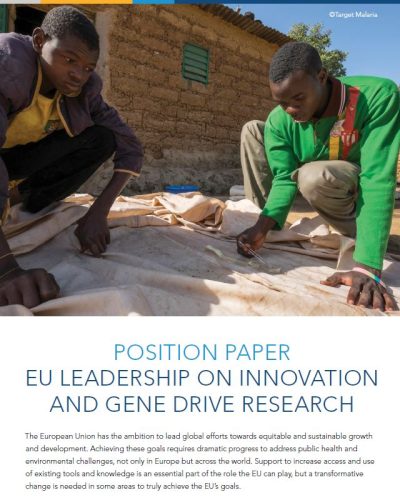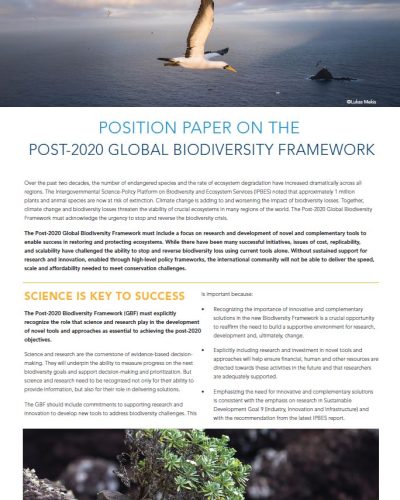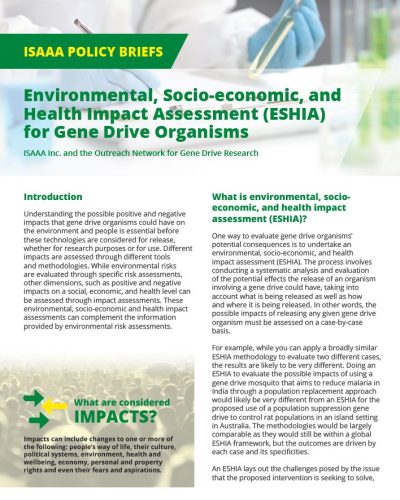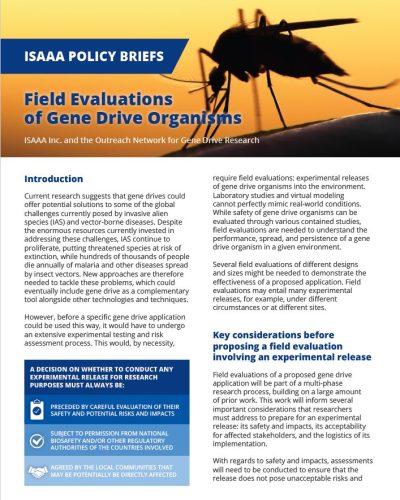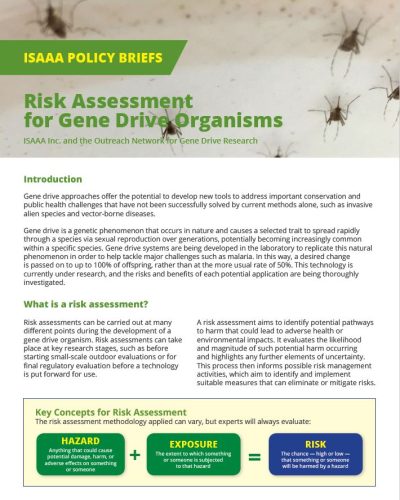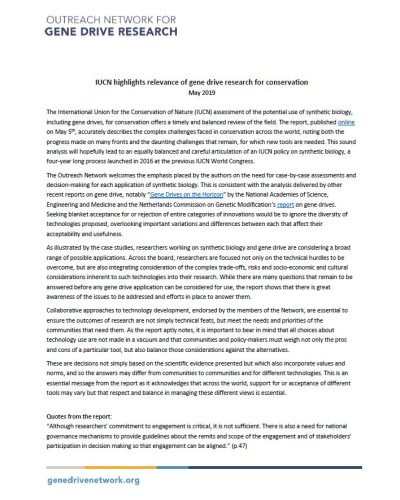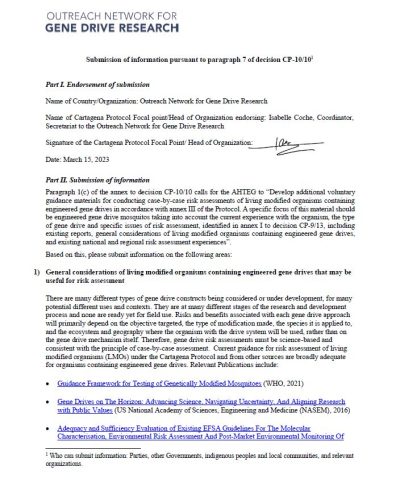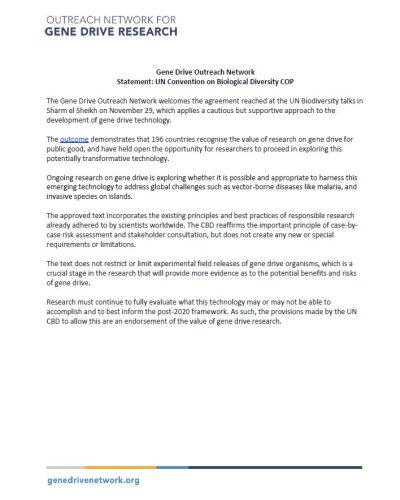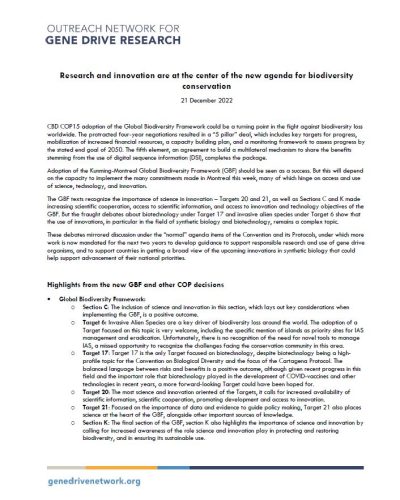Pourquoi la recherche sur l’impulsion génétique est-elle importante ?
Les approches fondées sur l’impulsion génétique pourraient offrir des stratégies complémentaires, durables et évolutives pour contrôler la transmission des maladies à transmission vectorielle et la population d'espèces exotiques envahissantes qui menacent les écosystèmes indigènes. Les maladies à transmission vectorielle et les espèces exotiques envahissantes sont des problèmes complexes que les stratégies et les outils existants n'ont pas permis de résoudre entièrement à ce jour. Le fardeau qu'elles représentent pour la société est énorme en termes de coûts sanitaires, économiques et sociaux, ce qui rend primordial la recherche de nouvelles approches.

17%
de toutes les maladies infectieuses sont des maladies à transmission vectorielle.

700
MILLE
décès par an sont causés par des maladies à transmission vectorielle.

$12 milliards
de dollars par an, c’est le coût économique annuel estimé du paludisme.

5%
de la surface terrestre est couverte par des îles, mais elles abritent près de la moitié des espèces menacées d'extinction.

60%
des extinctions recensées dans le monde et 90 % des extinctions enregistrées sur les îles sont associées à des espèces exotiques envahissantes.

$423 milliards
de dollars est le coût économique annuel estimé des espèces exotiques envahissantes.
Ressources


